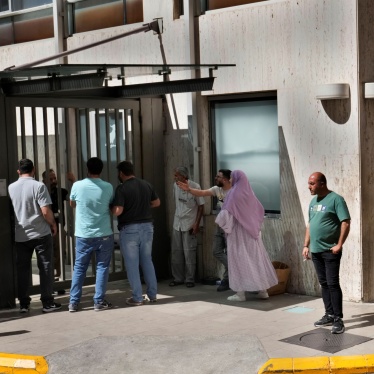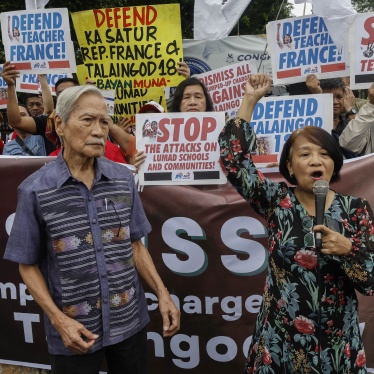(Washington) – The Obama administration should not sell aerial bombs to Saudi Arabia in the absence of serious investigations into alleged laws-of-war violations in Yemen.
On November 17, 2015, the United States Department of Defense announced that the State Department had approved a sale of US$1.29 billion worth of air-to-ground munitions such as laser-guided bombs and “general purpose” bombs with guidance systems. “The purchase replenishes the Royal Saudi Air Force’s current weapons supplies, which are becoming depleted due to the high operational tempo in multiple counter-terrorism operations,” the statement said.
“The US government is well aware of the Saudi-led coalition’s indiscriminate air attacks that have killed hundreds of civilians in Yemen since March,” said Joe Stork, deputy Middle East and North Africa director. “Providing the Saudis with more bombs under these circumstances is a recipe for greater civilian deaths, for which the US will be partially responsible.”
The US Congress has played a role in opposing sales of US weapons used in violation of the laws of war and should do so in this case, Human Rights Watch said.
A Saudi-led coalition of Arab countries has been conducting military operations in Yemen against Houthi and allied forces since late March. The United Nations reported that the fighting in Yemen has killed more than 2,500 civilians, most of them in air strikes by the Saudi-led coalition. Human Rights Watch has documented numerous airstrikes that unlawfully failed to discriminate between civilians and combatants or in places such as crowded markets in which there was no evident military target, causing hundreds of civilian casualties.
The US has played a direct role in coordinating coalition air operations, US military officials have said. The participation of US forces in specific attacks may make them responsible for possible laws-of-war violations by the coalition. The United Kingdom and France have also made recent military sales to Saudi Arabia.
Also on November 17, the US Defense Department announced State Department approval for the sale of $380 million worth of Joint Direct Attack Munitions (JDAMs) to the United Arab Emirates, which is part of the Saudi-led coalition conducting military operations in Yemen.
Under the laws of war, warring parties must take all feasible precautions to avoid harming civilians. Parties to a conflict are also required to investigate credible allegations of laws-of-war violations and hold accountable those found responsible for such violations. Human Rights Watch is unaware of any investigations of airstrikes by Saudi Arabia or other coalition members. Saudi officials have not responded to repeated requests from Human Rights Watch for information about specific airstrikes causing civilian loss of life and property.
“Until Saudi Arabia investigates apparently unlawful strikes by coalition warplanes and takes appropriate action, the US should not be supplying them more bombs,” Stork said. “Saudi disregard for the requirements of the laws of war makes enablers of those countries providing the weapons.”









